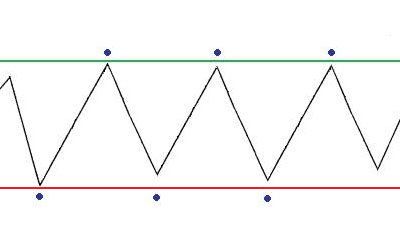Swing trading a popular trading style among part-time traders, because it requires less of a time commitment than more intensive styles such as day trading or scalping. It’s a longer-term trading style that requires the trader to hold on to trades for several days in a row, and therefore requires patience.
While it still requires a reasonably high level of dedication, in that you will need to put in a couple of hours every night analysing the markets, it is a bit more flexible in terms of which hours you put in. Therefore, it’s ideal for those who have full-time jobs or educational commitments (school, university etc) that still have enough free time to keep up to date with developments in the global economy.
Swing traders look for medium-term trends and only enter trades when it looks like there is a high probability of them coming off. With trades that are much longer than one day, you need to use bigger stop losses in order to account for volatility, and traders need to figure this into their money management plan.
The key to success with this strategy lies in holding your nerve, as you will often see trades go against you while you are holding them, because there can be many fluctuations of the price during the shorter time frames. Therefore, it’s vital that you have the ability to stay calm during these times and trust the analysis you have done.
With swing trades usually having larger targets than short-term trades, the spreads won’t impact your profits nearly as much, which opens you up to trading pairs with lower liquidity and bigger spreads, such as cross-currency pairs and exotics.
Swing trading may be a good fit for you if:
- You are happy to hold on to trades for days at a time
- You are willing to make fewer trades, and be careful to ensure that your trades are set up well.
- You are patient.
- You can cope with having larger stop losses.
- You can stay calm when price goes against you.
However, swing trading might not be suited to you if:
- You like your trading to be fast paced and action-packed
- You don’t have much patience, and like to know whether you are right or wrong soon after placing the trade
- You get nervous when trades go against you.
- You haven’t got a couple of hours a day to dedicate to analysis
So, if you are busy during the day, but have time to dedicate to a bit of trading in the evenings, then swing trading might be an ideal fit for your lifestyle – certainly more so than day trading or scalping.
Tradersdna is a leading digital and social media platform for traders and investors. Tradersdna offers premiere resources for trading and investing education, digital resources for personal finance, market analysis and free trading guides. More about TradersDNA Features: What Does It Take to Become an Aggressive Trader? | Everything You Need to Know About White Label Trading Software | Advantages of Automated Forex Trading










































